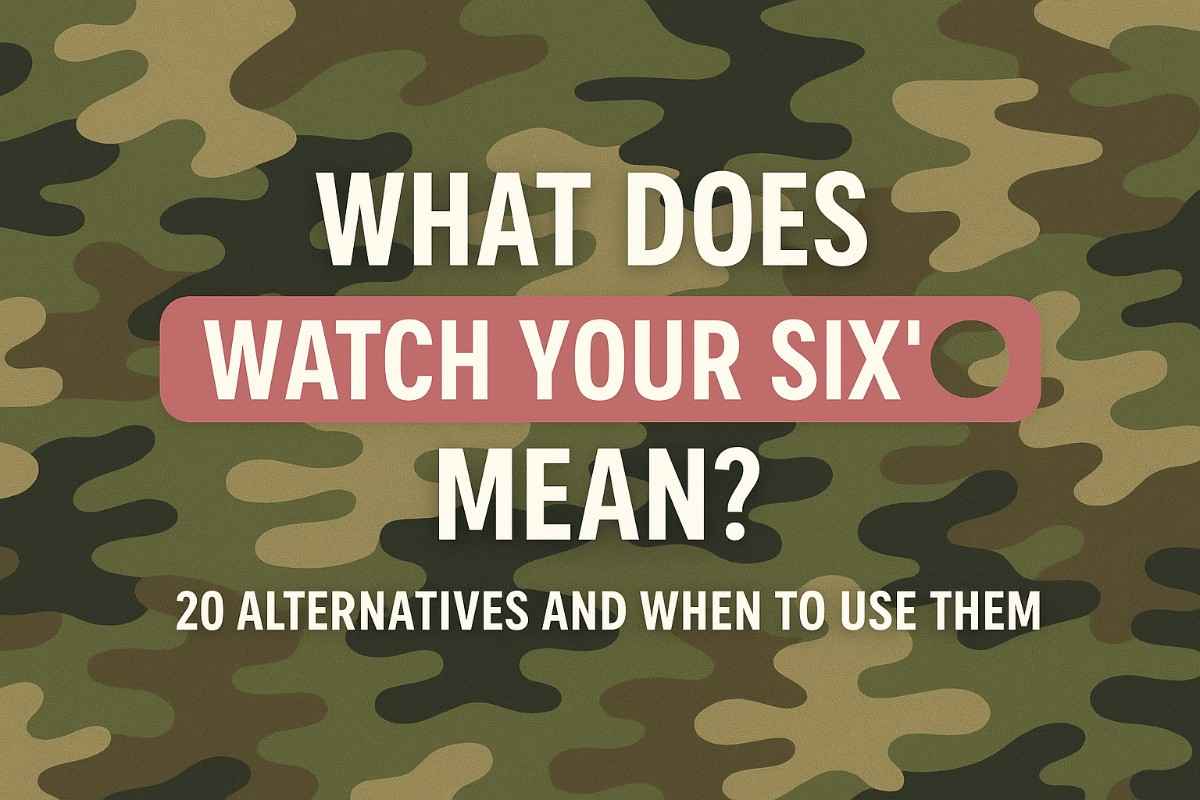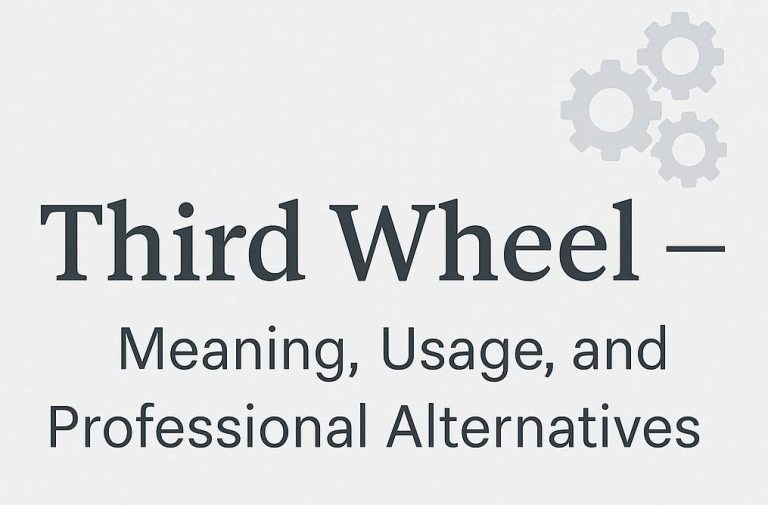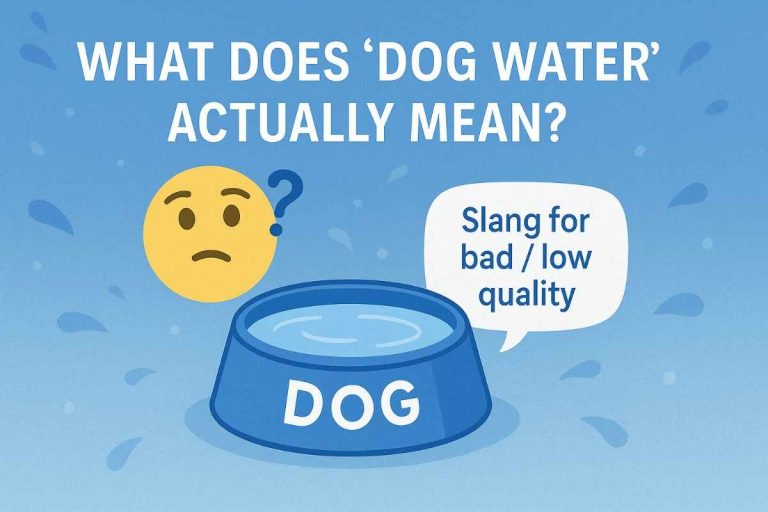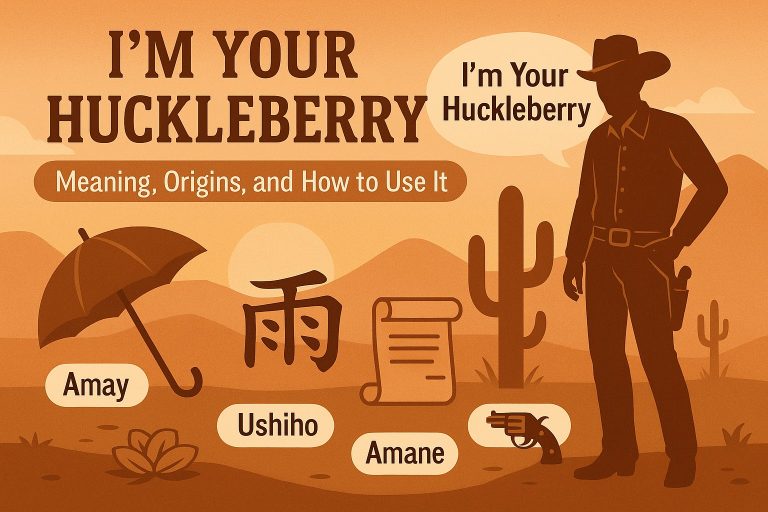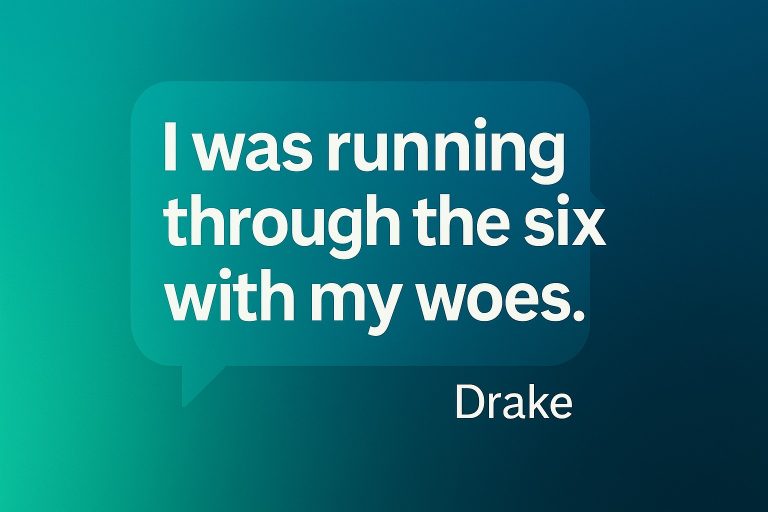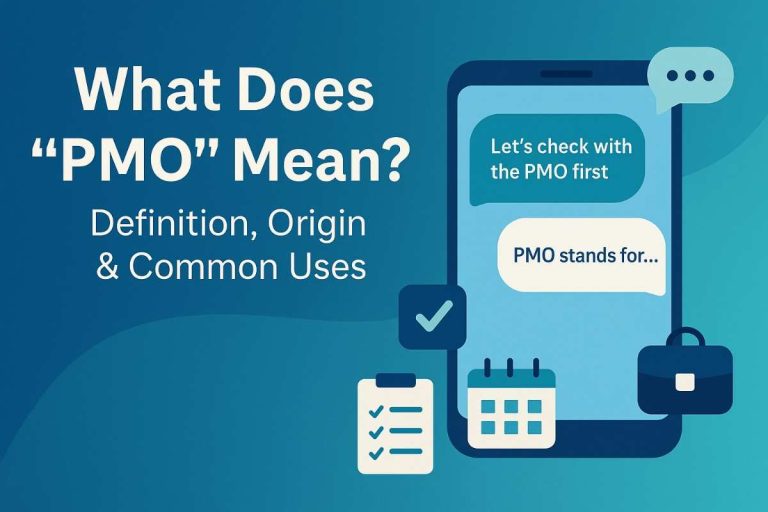What Does “Watch Your Six” Mean? 20 Alternatives and When to Use It
Language often borrows from military slang. It makes communication sharp, fast, and sometimes intense. “Watch your six” is one of those phrases. It’s short. It feels tough. But depending on where and when you use it, it might sound too direct—or even confusing.
In a casual setting, it’s usually fine. But in a professional or formal context? There are better, clearer, and more respectful ways to get the point across.
What Does “Watch Your Six” Mean?
The phrase “Watch your six” comes from military radio jargon. Picture a clock. If you’re facing 12 o’clock, then 6 o’clock is right behind you. So, “watch your six” literally means “watch your back.”
It’s a warning. A heads-up. It’s used when someone wants to alert another person to possible danger or tell them to stay alert. In the military or law enforcement, it’s taken seriously—your “six” is the most vulnerable spot.
In civilian talk, it’s more casual. People might say it to mean, “Be careful,” or “Look out for yourself.”
When to Use “Watch Your Six”
While it has military roots, you’ll hear it in many situations. Movies, office conversations, and even sports use this phrase. But timing and tone matter.
Here’s when it makes sense:
- Among friends: When joking around or giving someone a heads-up.
- In high-risk jobs: Like security, law enforcement, or military roles, where safety is a daily concern.
- In gaming culture: Especially in tactical or shooting games, players often say it to teammates.
- In workplace banter: Some teams or managers use it to say, “I’ve got your back,” or “Stay sharp.”
But there are better choices in professional settings or formal emails—especially if you don’t want to sound too intense or confusing.
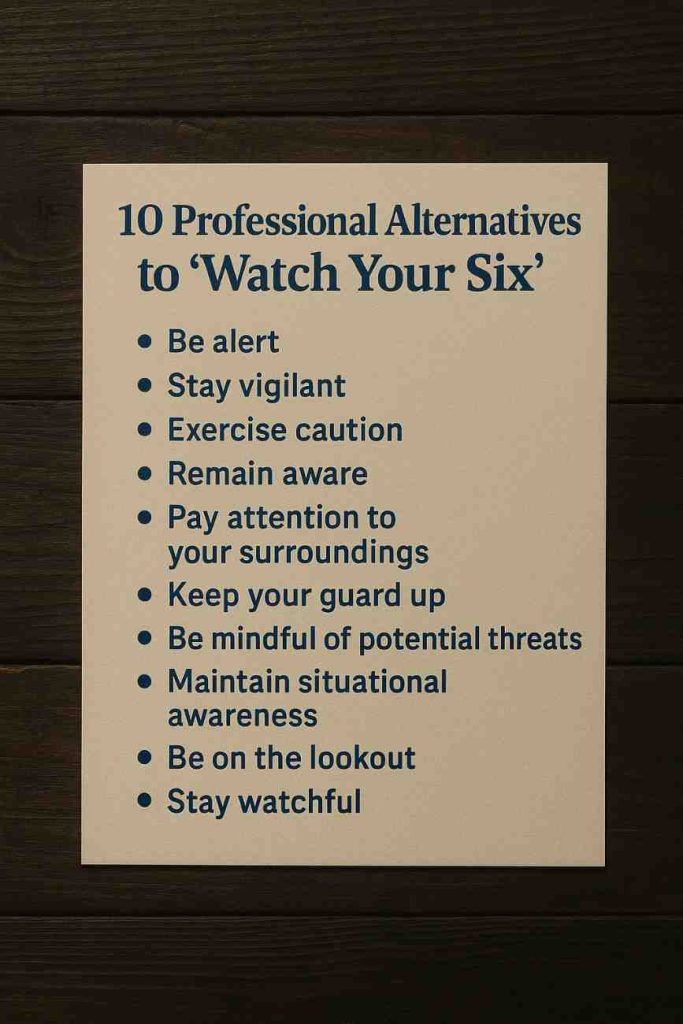
20 Professional Alternatives to “Watch Your Six”
Sometimes, “watch your six” feels too aggressive or casual for office emails, meetings, or written content. Here are 20 alternatives that carry the same meaning but sound more polished:
| Alternative Phrase | Meaning | Example | Scenario Example |
|---|---|---|---|
| Stay alert | Be aware of your surroundings | “Let’s stay alert during the project launch.” | Security brief or team meeting |
| Keep an eye out | Look around and be aware | “Keep an eye out for last-minute updates.” | Client project deadline |
| Be aware of your surroundings | Classic safety reminder | “Always be aware of your surroundings onsite.” | Construction or fieldwork |
| Stay sharp | Stay mentally focused | “Stay sharp on the final call with the client.” | Sales or negotiation setting |
| Keep your guard up | Don’t let your defenses down | “It’s still early—keep your guard up.” | Financial review |
| Be mindful | Pay attention, stay cautious | “Be mindful of any changes from upper management.” | Team communication |
| Be cautious | Proceed carefully | “Be cautious when reviewing these documents.” | Legal or compliance task |
| Stay focused | Stay on task and alert | “Stay focused—this deadline is tight.” | Creative or dev work |
| Be on the lookout | Watch out for something | “Be on the lookout for phishing emails.” | IT or cybersecurity team |
| Remain vigilant | Formal way to say “stay alert” | “Remain vigilant during vendor interactions.” | Vendor audits |
| Keep your eyes open | Watch carefully | “Keep your eyes open during the transition.” | Company restructure |
| Don’t let your guard down | Stay on edge, stay ready | “Let’s not let our guard down just yet.” | Security checkpoint |
| Double-check everything | Be thorough and cautious | “Double-check everything before you submit.” | QA or compliance work |
| Stay on your toes | Be quick and alert | “Stay on your toes in the meeting.” | Internal team sync |
| Protect your interests | Watch out for your own position | “Make sure to protect your interests in negotiations.” | Legal or HR conversation |
| Be ready for anything | Prepare for surprises | “Be ready for anything—this client is unpredictable.” | Sales or onboarding call |
| Take precautions | Prepare for possible risk | “Take precautions during the system upgrade.” | DevOps or IT team |
| Don’t overlook the details | Watch closely | “Don’t overlook the details on this proposal.” | Business or marketing plan |
| Be prepared | General readiness | “Be prepared for questions from leadership.” | Town hall or all-hands meeting |
| Keep calm and stay aware | Balanced and polite advice | “Keep calm and stay aware during the changes.” | Company transition |
Each of these alternatives fits a different tone. Some are simple. Some sound more professional. Choose what matches the moment.
Also Read – What Does “That’s a Wrap” Mean? Alternatives, Usage, and Origin Explained
Simple and Polite Responses to “Watch Your Six”
Not sure how to respond when someone says it to you? Keep it simple. Most of the time, it’s meant as friendly advice or concern.
Here are polite responses:
- “Thanks, I will.”
- “Appreciate the heads-up.”
- “Got it.”
- “Will do—thanks.”
- “Always do.”
- “Good looking out.”
If it comes from a friend or teammate, a smile and nod is often enough. It’s more about showing that you understand and appreciate the support.
In professional settings, tone matters. A calm and confident reply keeps things respectful.
Why “Watch Your Six” Is Used in Everyday Language
So, why has this military phrase stuck around?
It’s short and powerful. It creates urgency in just three words. That makes it perfect for movies, games, and real-world high-stress jobs.
But even outside those areas, people use it because it says a lot without needing long explanations. It’s direct. It makes the listener stop and think.
In the workplace, though, it can feel a bit too dramatic unless you’re in law enforcement, security, or military-style leadership. That’s why it’s better to adjust the tone depending on where you are and who you’re talking to.
It’s also worth noting that “watch your six” can sometimes sound like a warning about trust—especially in office politics. In that case, it can feel more serious: like, “Someone might be working against you.” If you’re unsure how it will be received, go with a softer phrase.
Conclusion
“Watch your six” may sound cool—and in the right setting, it works. But not every situation calls for military slang.
Knowing what it means (watch your back), when to use it (high-stakes or casual talk), and how to replace it (with clearer, more professional phrases) helps you communicate better.
You don’t need to sound like a movie script to sound strong. There are plenty of ways to say “be careful” or “stay alert” without overdoing it.
At the end of the day—scratch that—when it comes down to it, language should match the moment. So next time you feel the urge to say “watch your six,” take a breath and ask yourself: Who’s listening, and what do they really need to hear?
Because sometimes, the best way to have someone’s back… is just to say it clearly.
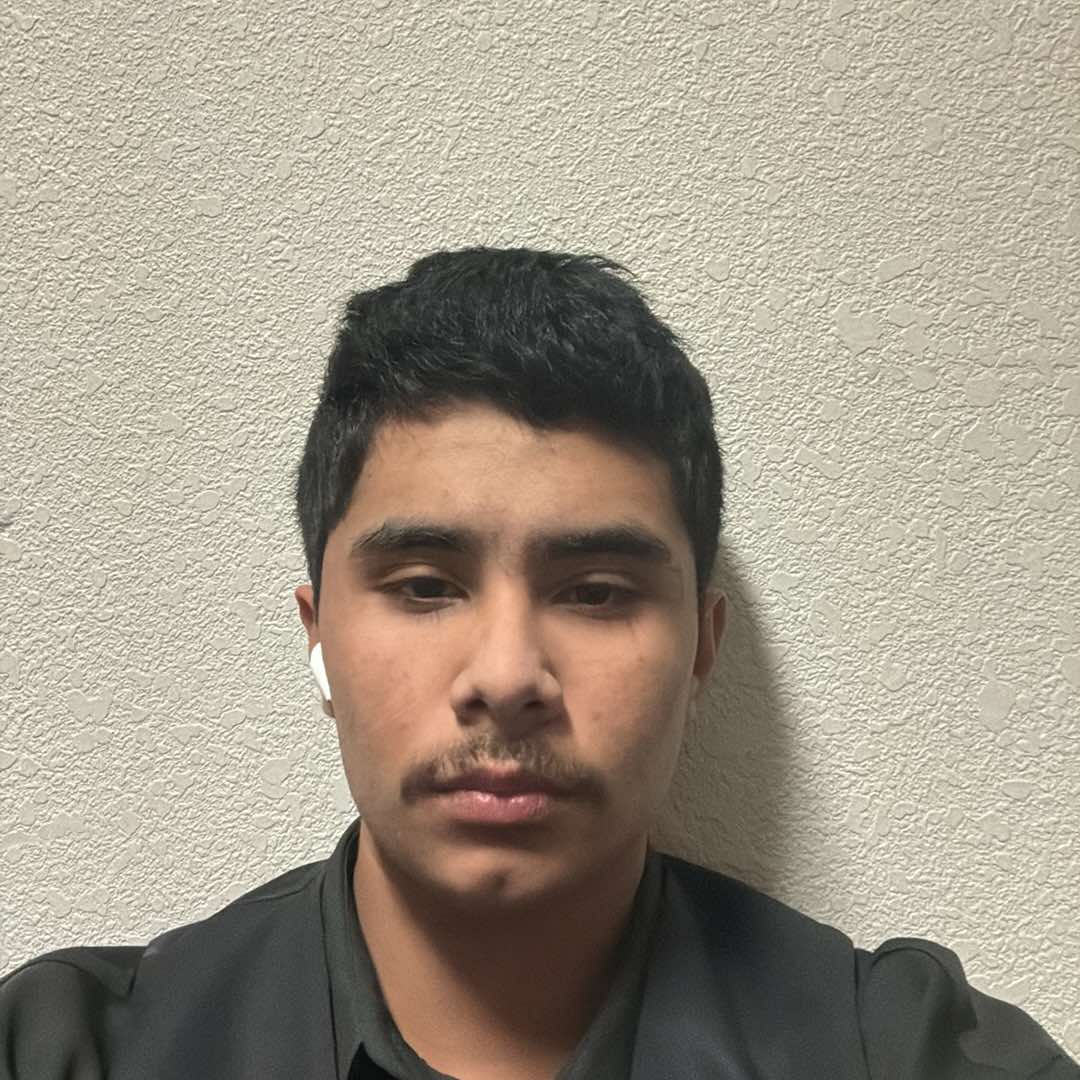
A former editor and grammar geek, David Langford has spent years refining the art of clear communication. He combines his journalism background with a knack for teaching, offering straightforward tips to master tricky grammar rules. When he’s not proofreading, he’s probably debating Oxford commas.

